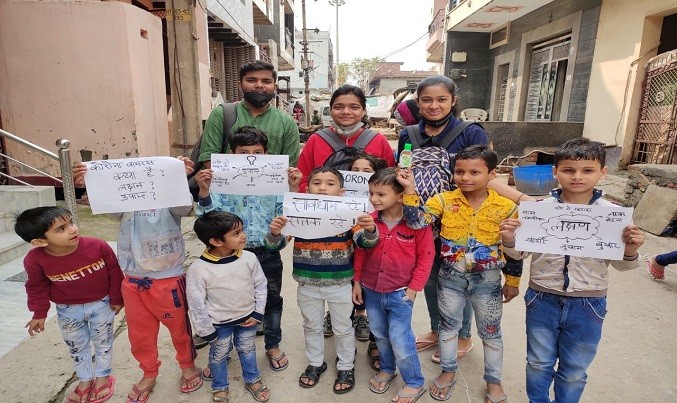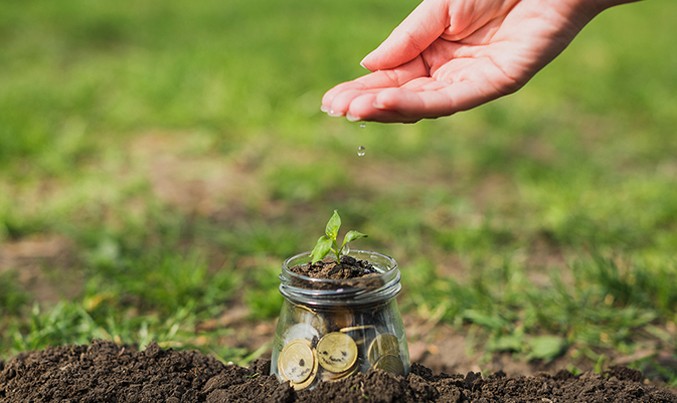The COVID pandemic has taken over the world, disrupting the health, livelihoods, and economies of entire countries.
What can we, in the social change sector, do? What are some of those working in the social space doing, in this time of extreme stress, disruption, and uncertainty? Are there, indeed, best practices? We asked a few folks to find out.
The first thing everyone is doing is taking care of their own staff to make sure that they are okay and are able to work from home where possible.
“People have been reaching out to the communities they work with in various ways,” says Pushpa Aman Singh, founder and CEO of GuideStar India, adding that corporates have also been in touch with requests for updates.
Basically, individuals and organizations can help in several ways. They can directly disseminate information and assistance, help with the backend by creating communication (as Pratham is doing), and help strengthen the system by working with the local administration and/or healthcare systems.
-
Help Age India has been on the ground, on mobile vans, helping the elderly and checking on them and referring seniors to doctors when needed.
-
Abhishek Kumar of Indicc Associates has teamed up with partner organizations to disseminate information about COVID in rural Rajasthan." He says that while urban and peri-urban India feels a sense of urgency, the idea in rural areas is primarily that COVID is a “cityfolk’s disease.”
-
Enactus Ramjas, a social enterprise initiative of Ramjas College, has started its sensitization campaigns in communities with street plays and other means, and distributed hand sanitizers as well. They are rolling out a plan to cover a larger area of Rajasthan. There are requests for posters and other material that communities can use.
-
Pratham Education Foundation is translating and/or dubbing WHO videos for use in communities across the country.
-
Shruthi Iyer, CEO of Mumbai-based Foundation for Mother and Child Health India, conducted a session on proper handwashing etiquette for the communities they work in, and has also started a WhatsApp group of mothers she works with, through which she disseminates information on the virus.
However, a recent Maharashtra government order prohibiting government-authorized information on WhatsApp and other social media has complicated matters somewhat.
A large part of the effort is spent in countering false and unverified information, something that many organizations are undertaking on a war footing. Abhishek suggests that civil society, rather than working piecemeal, come together to set a structured strategy to contain the spread of the virus.
In fact, Shruthi and Abhishek say that this is a time for the sector to be creative and find better ways to communicate and manage work.
However, it is obvious that the real effect will be felt later, on livelihoods and the economy, with the unorganized sector being the most affected. Roadside vendors, construction workers, drivers, and others might be staring at a long recovery time.
There is a huge economic and social dimension to this,” says Abhishek. “We expect a huge disruption in movement of goods and logistics.” Much is expected of the COVID Economic Task Force that the Indian prime minister announced on March 19.
All of that, though, will come later.
“Right now, people are taking care of health needs of the community,” says Pushpa. “We realize that while everyone says ‘wash, wash, wash,’ there are people who don’t have water.” (And, obviously, sanitizer.)
“Now, it is important to make givers realize that you need to think beyond your own family,” she says. The #GivingTuesday campaign page explains this further, exhorting people to share their stories of #CoronaKindness.
“In this time of stress and anxiety, we need to talk about people’s kindness and what people are doing. We are always reading about what is not going right,” says Pushpa.
What Can NGOs Do
-
Check in with their communities
-
Check in with their donors and sound off probable livelihood issues
-
Help disseminate information including correct protocol to lessen strain on public health system
-
Help other NGOs and administration with collateral and back-end work
Photo credits: Enactus Ramjas











